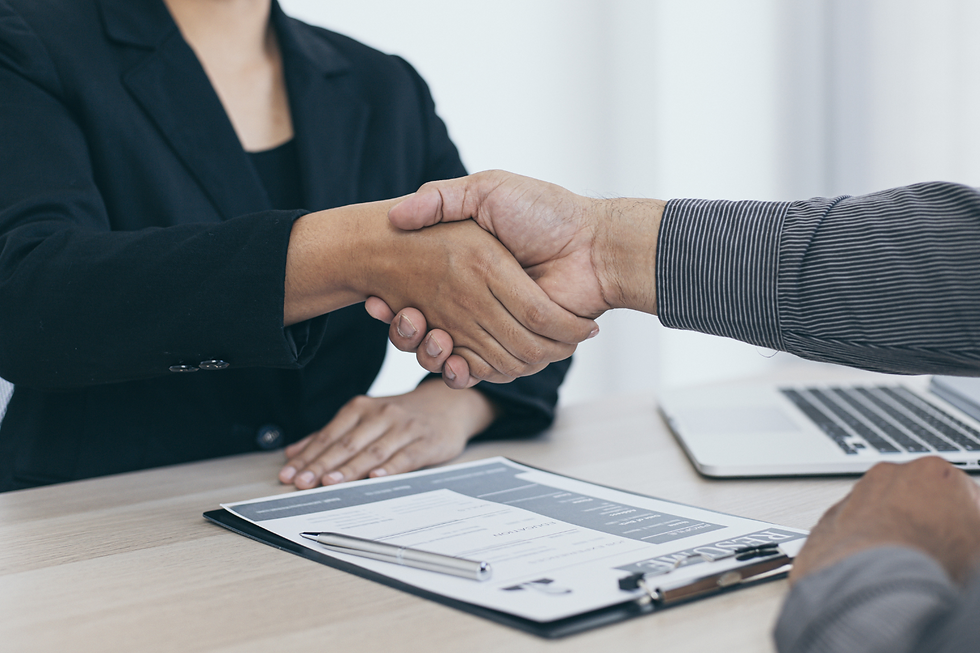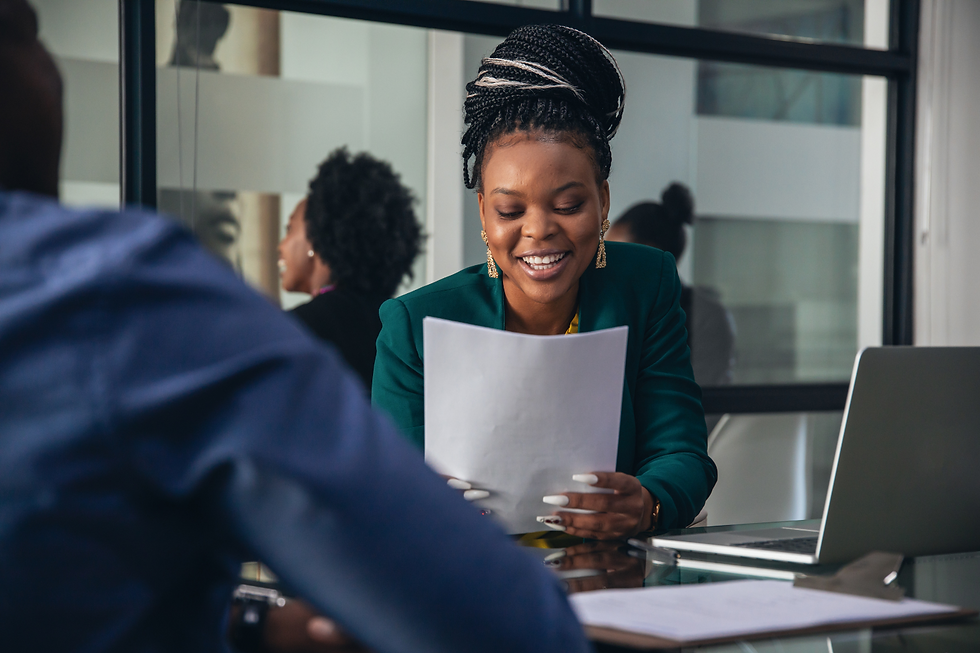What Should I Wear to an Interview? Let’s Talk About Looking the Part at Any Age
- Samara Knight

- Jul 18
- 3 min read

Getting back out into the career world after being divorced hasn’t exactly been easy.
Add in trying to figure out what to wear for interviews and it becomes even more stressful.
I’ve had moments standing in my closet, totally frozen, thinking What should I wear that says I’m confident, professional, and ready for this?
Now that I’m in a management position, I also see it from the other side.
And I have to admit… I’ve been shocked. People are showing up to interviews like they’re meeting a friend for coffee or heading to the beach.
I’ve seen flip flops, ripped jeans, t-shirts, even messy hair and sweatpants.
It makes me wonder what happened to the days when you could tell someone was there for an interview just by how they walked in the room.
So, let’s get into it.
What should you wear to an interview, no matter what age you are or what job you’re applying for?
This post is for every woman who's trying to figure it out, because I’ve been there too.

Here’s What Every Woman Should Keep in Mind (No Matter Your Age)
Research the company culture ahead of time A tech startup will expect something different than a law office. Look at the company’s website or social media. See how their employees dress. If you’re working with a recruiter, ask them what the vibe is.
Choose clothes that are clean, wrinkle-free, and fit well That means nothing too tight or baggy. Your outfit should help you feel like the best version of yourself, not distract you.
Pick comfort with polish You want to feel confident, not stiff. If you’re tugging or adjusting the whole time, it’s not the right outfit.
Dress slightly more formal than the office vibe Better to be a bit overdressed than to look like you didn’t try. It shows you care.
Stick to neutral colors for your base outfit Black, navy, gray, and white are timeless and professional. You can add personality with a scarf or jewelry in softer colors, but don’t go overboard.
Closed-toe shoes are safest Flats or low heels work best. Make sure they’re clean and in good condition.
Keep makeup and accessories minimal Less is more for interviews. Clean hair, neat nails, and no strong perfumes.

What to Wear Based on the Interview Setting
If the company is more formal (think law firm or financial office):
A pantsuit or skirt suit in black, navy, or gray
Blouse or button-down shirt underneath
Knee-length skirt if choosing a skirt suit
Simple jewelry and conservative shoes
If the company is more casual (like a start-up or creative role):
Dark jeans or pants with a tailored blouse
Add a blazer or cardigan to pull the outfit together
Think in “three pieces” (pants + top + blazer)
Avoid flip-flops, t-shirts, shorts, or hoodies, even in casual environments

How to Tailor Your Look Based on Age (With Flexibility)
This isn’t about rules, but more about intention.
You can still be true to your style while honoring the moment.
Here’s what tends to work well for each stage of life:
In Your 20s: You can get away with more modern styles, but keep it polished. Think sleek silhouettes, structured blazers, and simple accessories. Avoid anything too trendy, revealing, or loud. Focus on looking capable and prepared.
In Your 30s and 40s: By now, you’re building your personal brand. Aim for outfits that feel powerful and professional. Classic sheath dresses, well-fitted pants, pencil skirts, and blazers work beautifully. Invest in quality pieces that fit your shape well.
In Your 50s and 60s: Comfort and elegance are everything. Tailored jackets, chic blouses, or knit tops paired with slacks or shift dresses are perfect. Add personality with a bold necklace or stylish shoes that don’t sacrifice comfort.

Here’s What I’ve Learned Firsthand
Trying to impress someone in an interview can feel like a game sometimes, but your outfit truly helps set the tone before you even open your mouth.
The way you present yourself shows whether you respect the opportunity.
When I go to an interview, I remind myself that I’m not just trying to look “cute” or trendy, I’m trying to show that I take the role seriously.
And when people show up to interviews in casual clothes like flip-flops or hoodies, it’s hard not to take it personally.
Like they’re saying, “This job doesn’t matter that much to me.”
Let’s bring back that energy were showing up meant showing up.
When someone walks in polished, prepared, and professional, trust me, it stands out.
In the best way possible.
Now I’d love to know from you What do you wear to interviews that makes you feel powerful and put together?
Or, have you ever had a fashion fail at one?
Your story could really help another woman feel more confident walking into her next opportunity.
Would you be willing to share it?











Comments